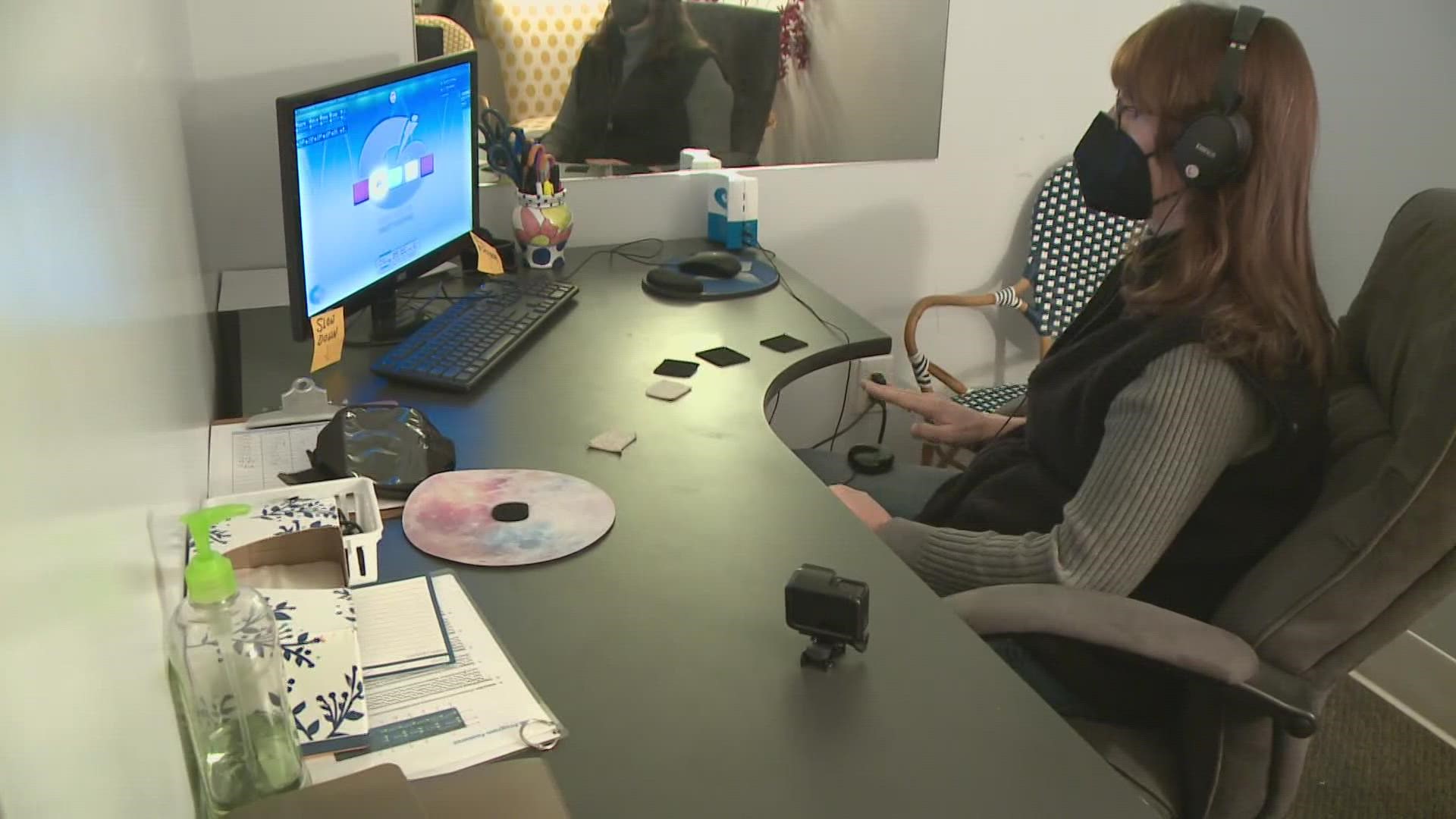SCARBOROUGH, Maine — Long COVID cases are emerging as a serious concern. Studies show 10 to 30 percent of all COVID patients suffer from symptoms long after their initial infection.
Treatment options are still in the early stages, and recovery is not guaranteed. But therapies used to treat brain injuries give some Long COVID patients hope for the first time.
For Cynthia Hamilton, daily life is very difficult.
"Taking a shower takes three hours because I get so short of breath trying to put my hands over my head trying to wash my hair," Hamilton explained.
There are also sudden rashes, severe fatigue, loss of appetite, and debilitating pain. Symptoms so bad she had to quit her job as a school guidance counselor.
"The pain will go to my shoulder and run down to my hand," she said. When the joint pain began in June of 2020, Hamilton was diagnosed with fibromyalgia.
After testing positive for COVID last May, doctors said she actually had long COVID, a condition where symptoms continue or increase long after initial infection. Despite seeing numerous doctors, tests, and scans at a post-COVID clinic at Beth Israel Deaconess Medical Center in Boston, more problems emerged from brain fog to anxiety.
"It has attacked every part of my body," Hamiton explained.
Her doctor recommended brain-based therapies at the Scarborough Neurodevelopment Center, including a computer-based program called Interactive Metronome. When Hamiton hears a tone through headphones, she tries to tap in sync with it.
"\What that is doing is helping form new neural connections," Suzanne Sylvester, a speech-language pathologist who treats Hamiton, said. Sylvester said she is treating more patients with cognitive problems connected to long COVID.
Cynthia also does weekly sessions of cranial electrotherapy stimulation to manage mood conditions such as anxiety, depression, and insomnia. An Alpha-Stim device sends a small current that increases alpha waves across the brain.
Hamiton has been in treatment since fall 2021. Her memory skills are better, and she feels calmer.
Still, Hamilton said, "I don't want to just treat the symptoms. I want to heal. I just want to be whole again."
Researchers from MaineHealth are also leading a nationwide effort funded by a $1.5 million grant from the National Institutes of Health. The study will enroll 90 adult patients across the MaineHealth system.

